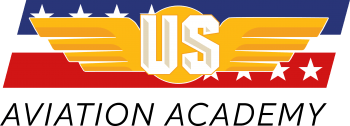

Military Flight School Timeline
The following flight training timeline and costing data is based on Collegiate semesters and VA funding cost, which is subject to VA yearly funding cap. Flight training is only an approximation as every student learns at a different pace and other factors such as aircraft availability, instructor availability and weather delays may require timeline flexibility.
Overview Private Instrument Commercial Instructor
From start to finish, this Flight Training Timeline is intended to allow Transitioning Service Members and Veterans to utilize their GI Bill® Educational Benefits at our FAA Approved Part 141 Flight School to achieve maximum commercial ratings while keeping out-of-pocket costs to a minimum. Learn the difference between Part 61 Flight Training and Part 141 Flight Training. A non-Military/non-GI Bill® eligible Student would have to pay up to $120,000 for all the flight training and collegiate credit hours while also paying their living and transportation expenses out of pocket. Make sure to consider the costs of housing and transportation when choosing your flight school. By traveling to a full-service flight school such as US Aviation Academy, you can focus on your training full-time while being able to utilize the Monthly Housing Allowance.
Flight Training
- Approx. 20 Months for Maximum Ratings
- Approx. 12 Months for Basic Ratings
- Private Pilot Requires Funding
- Employable as low as 14 Months
Collegiate Degree
- Bachelor of Science in Aviation
- 120 Credit Hours for Graduation
- Maximize Veteran Benefits
- Can Be Completed in under 36 Months
Denton, Texas (DTO), Conroe, Texas (CXO), and Fort Worth (AFW) Campuses are VA Approved
The funding number below is based on attending a Collegiate Program out of Denton, Texas (DTO). Fort Worth, Texas (AFW) will have a different pace based on Tarrant County Community College.
Private Pilot
The course objective is to provide the student with the knowledge, skills, and aeronautical experience required to safely and competently fly a single-engine aircraft such as a Cessna 172 while carrying passengers for leisure, non-commercial flights.Ground School
- In-Person Instruction
- 40 Hours Total Classroom Time
- 2 Hours a Day, 4 Weeks of Training
- Endorsement to Take PAR Written Exam
- Official PSI Testing on Site
Flight Training
- 35 Hours FAA Minimums
- 55 Hours Average Time to Completion
- Flight in Cessna 152 (under 180lbs)
- Flight in Cessna 172 (over 180lbs)
Timeline: 2 to 4 Months
Instrument Rating
The course objective is to provide the student with the knowledge, skills, and aeronautical experience required to safely and competently fly in instrument meteorological conditions (IMC) while relying solely on the information provided by the instrument control panel.Ground School
- In-Person Instruction
- 40 Hours Total Classroom Time
- 2 Hours a Day, 4 Weeks of Training
- Endorsement to Take IRA Written Exam
- Official PSI Testing on Site
Flight Training
- 35 Hours FAA Minimums
- 50 Hours Average Time to Completion
- Flight in Cessna 152 (under 180lbs)
- Flight in Cessna 172 (over 180lbs)
- Self-Testing Authority (No DPE!)
Timeline: 2 Months
Commercial Single-Engine
The course objective is to provide the student with the knowledge, skills, and aeronautical experience required to safely and competently fly single-engine aircraft for compensation or hire. Certain FAA restrictions apply to the type of for-hire activity for this level of a commercial pilot.Ground School
- In-Person Instruction
- 60 Hours Total Classroom Time (CSEL & CMEL)
- 3 Hours a Day, 4 Weeks of Training
- Endorsement to Take CAX Written Exam
- Official PSI Testing on Site
Flight Training
- 120 Hours FAA Minimums
- 120 Hours Average Time to Completion
- Flight in Cessna 152 (Solo Flights)
- Flight in Cessna 172 (Dual Flights)
- Self-Testing Authority (No DPE!)
Timeline: 6 Months
Certified Flight Instructor
The course objective is to provide the student with the knowledge, skills, and aeronautical experience required to safely and competently teach other student pilots the knowledge and skills to become a pilot themselves. You will be able to sign off student pilots on solos as well as teach commercial maneuvers. This is the best method of receiving a paid flying position and can build time quickly in certain circumstances.Ground School
- In-Person Practice Teaching Lessons
- 40 Hours Total Classroom Time
- 4 Hours a Day, 2 Weeks of Training
- Prepare to take FOI/FIA Written Exam
- Official PSI Testing on Site
Flight Training
- 25 Hours FAA Minimums
- 25 Hours Average Time to Completion
- Fly Right Seat and Practice Teaching
- Flight in Cessna 172
- Self-Testing Authority (No DPE!)
Timeline: 2 Months
Flight Instructor Instrument
The course objective is to provide the student with the knowledge, skills, and aeronautical experience required to safely and competently teach pilots who are looking to achieve their instrument rating. You will become highly proficient in instrument flying and instructing students on standards and procedures to safely fly without outside visual references.Ground School
- In-Person Practice Teaching Lessons
- Combined with CFI Ground
- 4 Hours a Day, 1 Week of Training
- Prepare to take FAA FII Written Exam
- Official PSI Testing on Site
Flight Training
- 15 Hours FAA Minimums
- 15 Hours Average Time to Completion
- Fly Right Seat and Practice Teaching
- Flight in Cessna 172
- Self-Testing Authority (No DPE!)
Timeline: 2 Months
Commercial Multi-Engine
The course objective is to provide the student with the knowledge, skills, and aeronautical experience required to safely and competently fly aircraft with multiple engines for compensation or hire. Multi-engine pilots will learn how to operate the more complex aspect of larger aircraft as well as know procedures for engine-out emergencies. Certain FAA restrictions still apply to the type of for-hire activity for this level of commercial pilot.Ground School
- In-Person Classroom Instruction
- Combined with Single-Engine Ground
- NO Written Exam
Flight Training
- 15 Hours FAA Minimums
- 15 Hours Average Time to Completion
- Flight in Seneca PA34 (Analog Gauges)
- Flight in Seminole PA44 (Digital Panel)
- Self-Testing Authority (No DPE!)
Timeline: 2 Months
Multi-Engine Instructor
The course objective is to provide the student with the knowledge, skills, and aeronautical experience required to safely and competently teach pilots who are seeking the ability to fly complex aircraft with multiple engines. You will demonstrate proper and safe operations as well as how to handle engine-out emergencies.Ground School
- In-Person Classroom Instruction
- 20 Hours Total Classroom Time
- 4 Hours a Day, 5 Days of Training
- NO Written Exam
Flight Training
- 25 Hours FAA Minimums
- 25 Hours Average Time to Completion
- Flight in Seneca PA34 (Analog Gauges)
- Flight in Seminole PA44 (Digital Panel)
- Self-Testing Authority (No DPE!)
